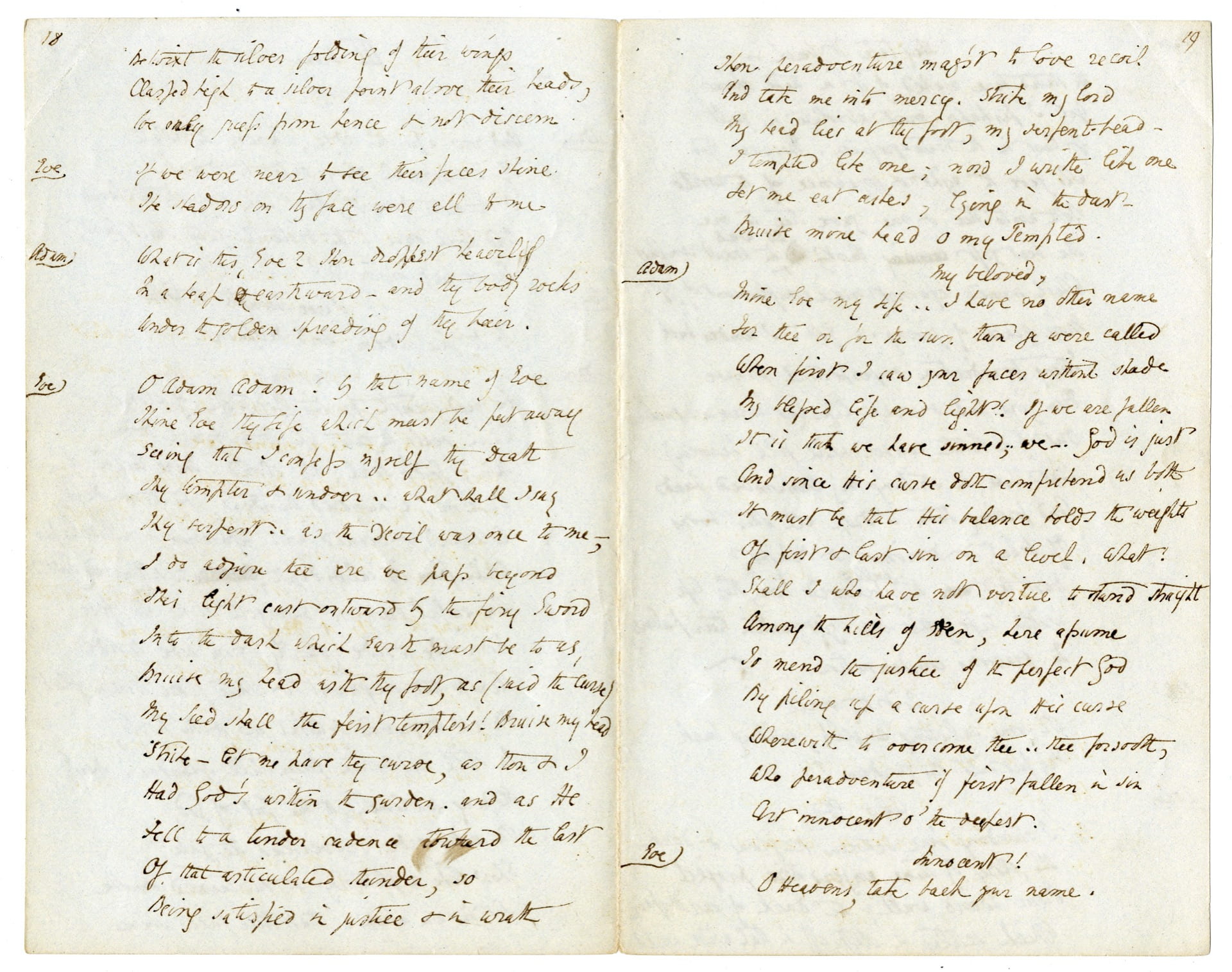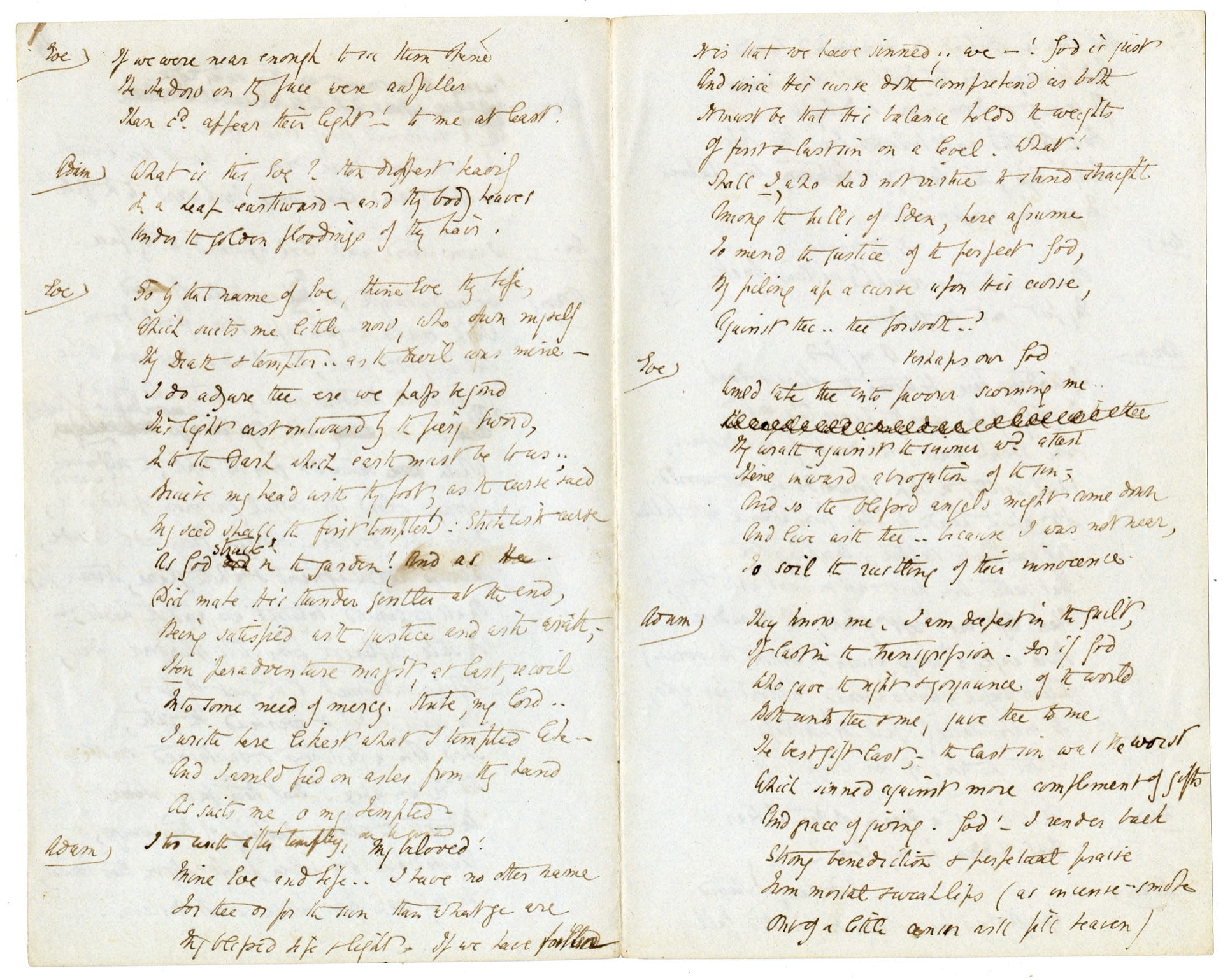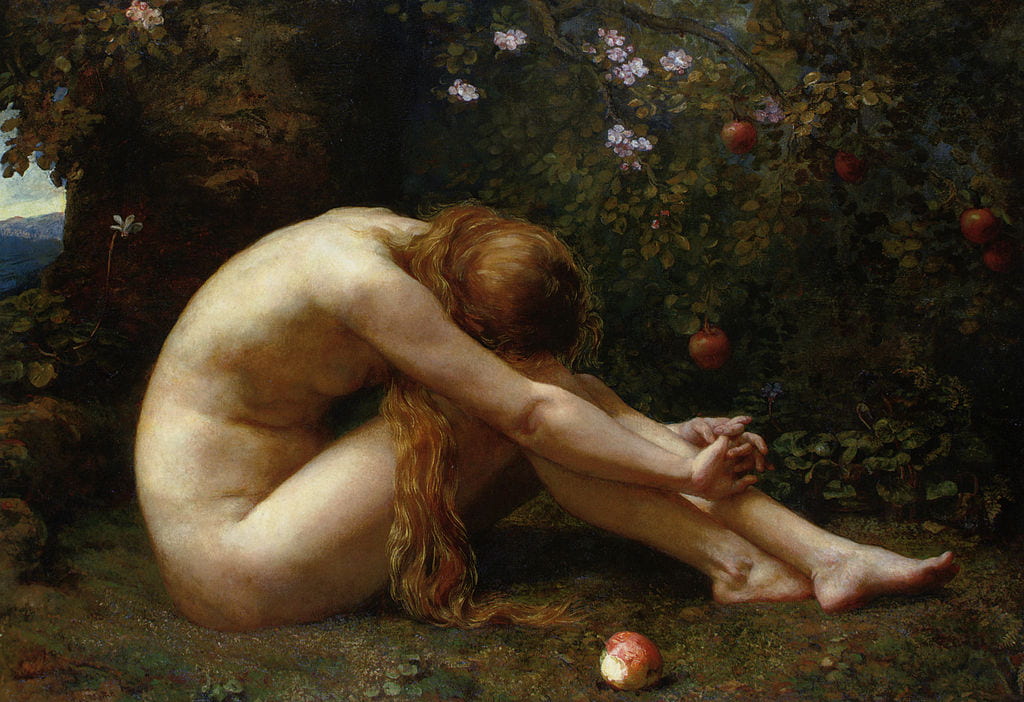A Drama of Exile: EBB Rewrites Eve
Elizabeth Barrett Browning’s provides a revisionary account of the Fall in A Drama of Exile (1844), a dramatic representation of Eve and Adam after their exile from Eden. Barrett Browning challenged the ways in which Eve had been represented in the multiple stories about the Fall in Genesis.
The manuscripts provided are EBB’s early versions of her poem. The lines in these portions of her drafts from her manuscripts became 11. 390-490 of her final publication of the poem. These lines contain a crucial discussion between Adam and Eve involving Eve’s guilt about the Fall.
There are noticeable differences in Eve’s remarks between the “Early Version” and the “Later version” of EBB’s manuscripts of the poem. This is especially evident in how the “Early Version” handles the lines that were published as lines 420-438. The portion of the “Early Version” corresponding to those lines can be found on pp. 18-19. The lines read as:
“Oh Adam Adam! by the name of Eve
Thine Eve thy life which must be put away
Seeing that I confess myself thy death
Thy tempter & undoer… what shall I say
Thy serpent … as the Devil was once me, —
I do adjure thee ere we pass beyond
This light cast outward by the fiery Sword”
A later version of the same passage can be found on p. 20 of the “Later Version” Those lines read as:
“So by that name of Eve, thine Eve thy life,
Which suits me little now, who own myself
Thy Death & tempter…as the Devil was mine —
I do adjure thee ere we pass beyond
This light cast outward by the fiery Sword”
There are several significant and notable differences between the earlier drafts and the one EBB finally decided to publish. Her revisions reveal her effort to reimagine the ways in which Eve has always been portrayed as the guilty party in this situation.
In a letter written to Richard Hengist Horne on December 29, 1843, EBB explains to him the ‘object’ of A Drama of Exile was “the development of the peculiar anguish of Eve – the fate of woman at its root.” She then adds that “the principal interest is set on Eve – the ‘first in the transgresssion.’ First in the transgression has been said over & over again, because of the tradition, – but first deepest in the sorrow, nobody seems to have said, or at least, written of.”
Exhibit created by Lyssa Gonzalez

"A Drama of Exile" Manuscript pp. 18-19 (Early Version)
These pages of the early version of EBB’s manuscript show significant changes to what became published as lines 420-438. The relevant lines on this manuscript read as: “O Adam Adam! by the name of Eve!” and continue on to p. 19. EBB reflects negative interpretations of Eve’s roles in this earlier version.

"A Drama of Exile" Manuscript p. 20 (Early Version)
This is another page from the Early version of A Drama of Exile. The lines that are most important here are right at the top of the page, spoken by Adam. EBB crosses out some words and inserts “so was” to the line that reads “The best gift…last, ^so was the worst sin, last”

"A Drama of Exile" Manuscript pp. 20-21 (Later Version)
These set of pages are from EBB’s later version of her manuscript of A Drama of Exile. This later version corresponds to the first image as they are the same lines. Through these revisions , EBB changes how Eve relates her guilt to that of a serpent and at first takes on the sole responsibility for the Fall.

Recent Comments